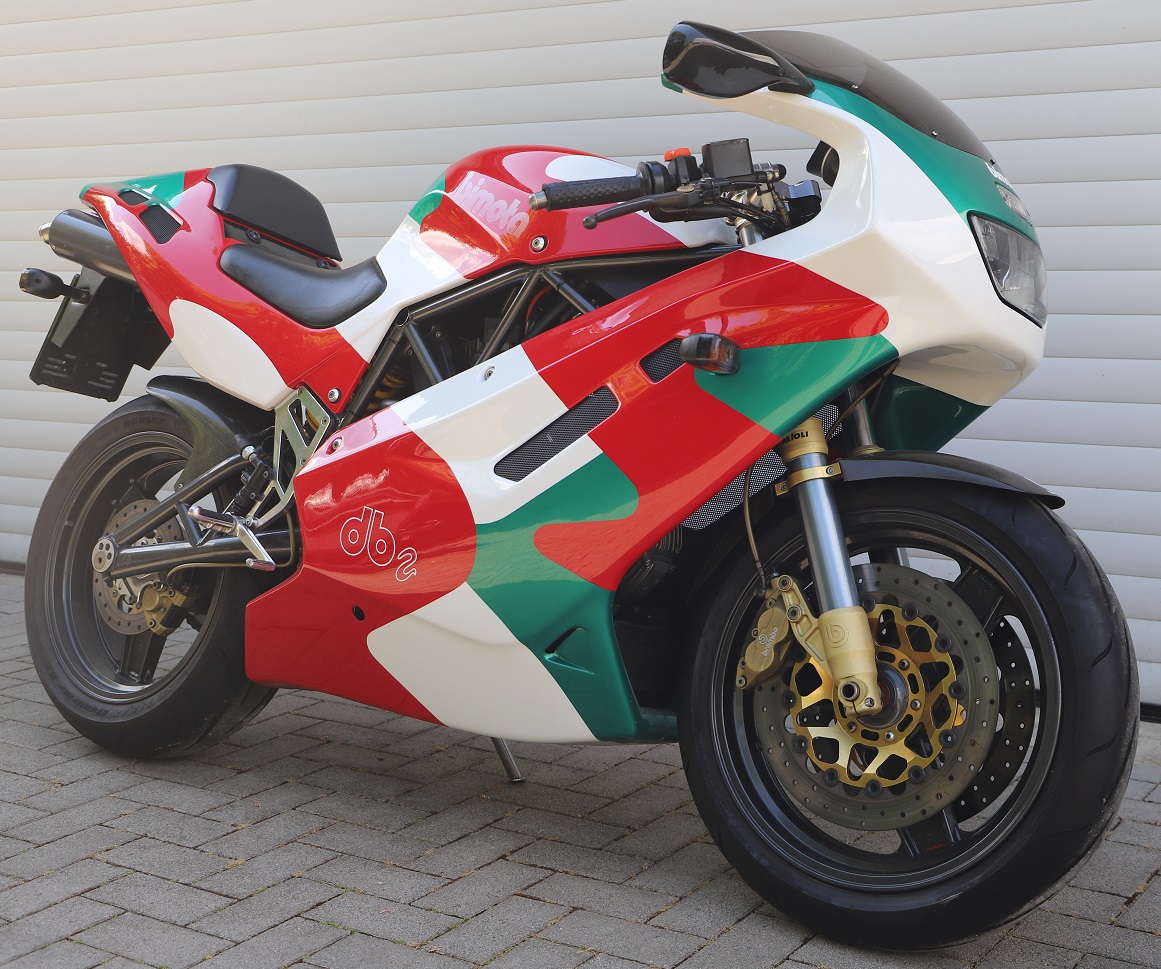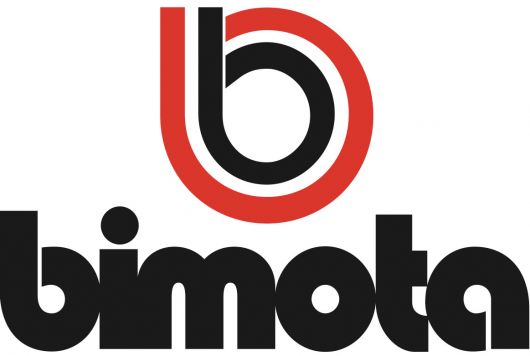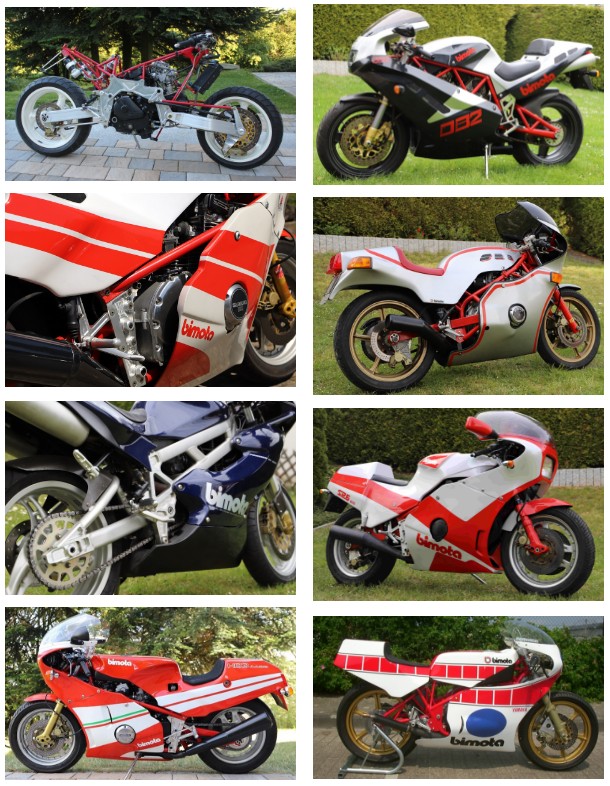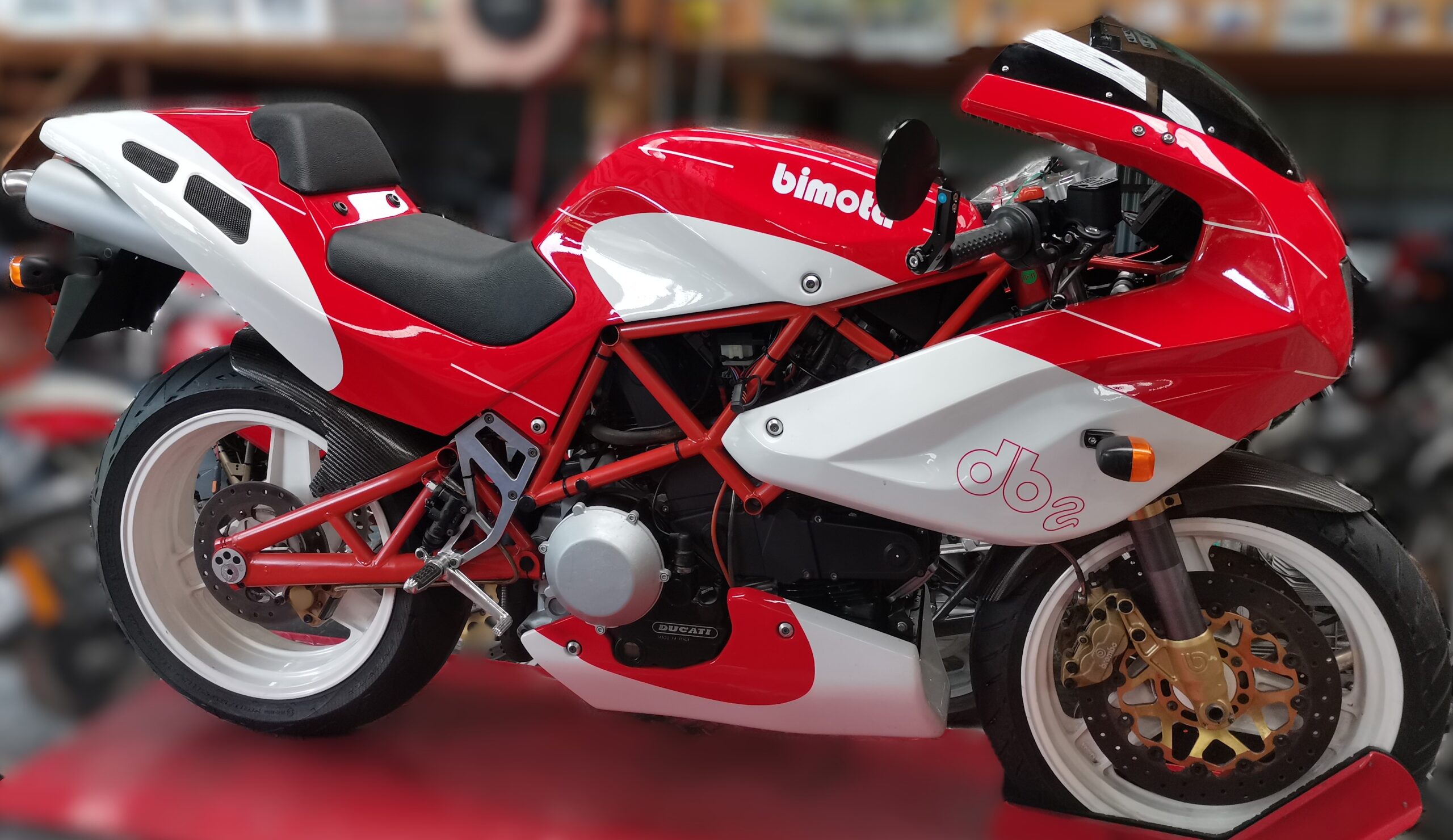
Photo by Michael Hood, Dreamcycles Ltd, Warkworth, New Zealand
| Designer | Pier Luigi Marconi | Premiere | Köln 1992 |
| Production period | 1993 – 1995 | Production numbers | 408 |
| Power | 59 KW (80 PS) | Displacment | 904 ccm |
| Topspeed | 220 km/h | Weight | Fahrbereit 180 kg Leergewicht 168 kg |
| Price | 35.870 DM (1993) | Colours | 374 white / red 34 white / red / green |
| Technical basis | Ducati 900 SS |
With the introduction of the DB2 in 1992, Bimota launched an all-Italian model again, seven years after the DB1. The foundation of the bike is the air-/oil-cooled 90-degree V-twin engine from the Ducati 900 SS. This two-valve engine, featuring a single overhead camshaft driven by a toothed belt and desmodromically actuated valves, delivers 78 hp at 7,300 rpm. Bimota enhances performance, torque, and throttle response through new carburetor jets as well as a redesigned intake and exhaust system.
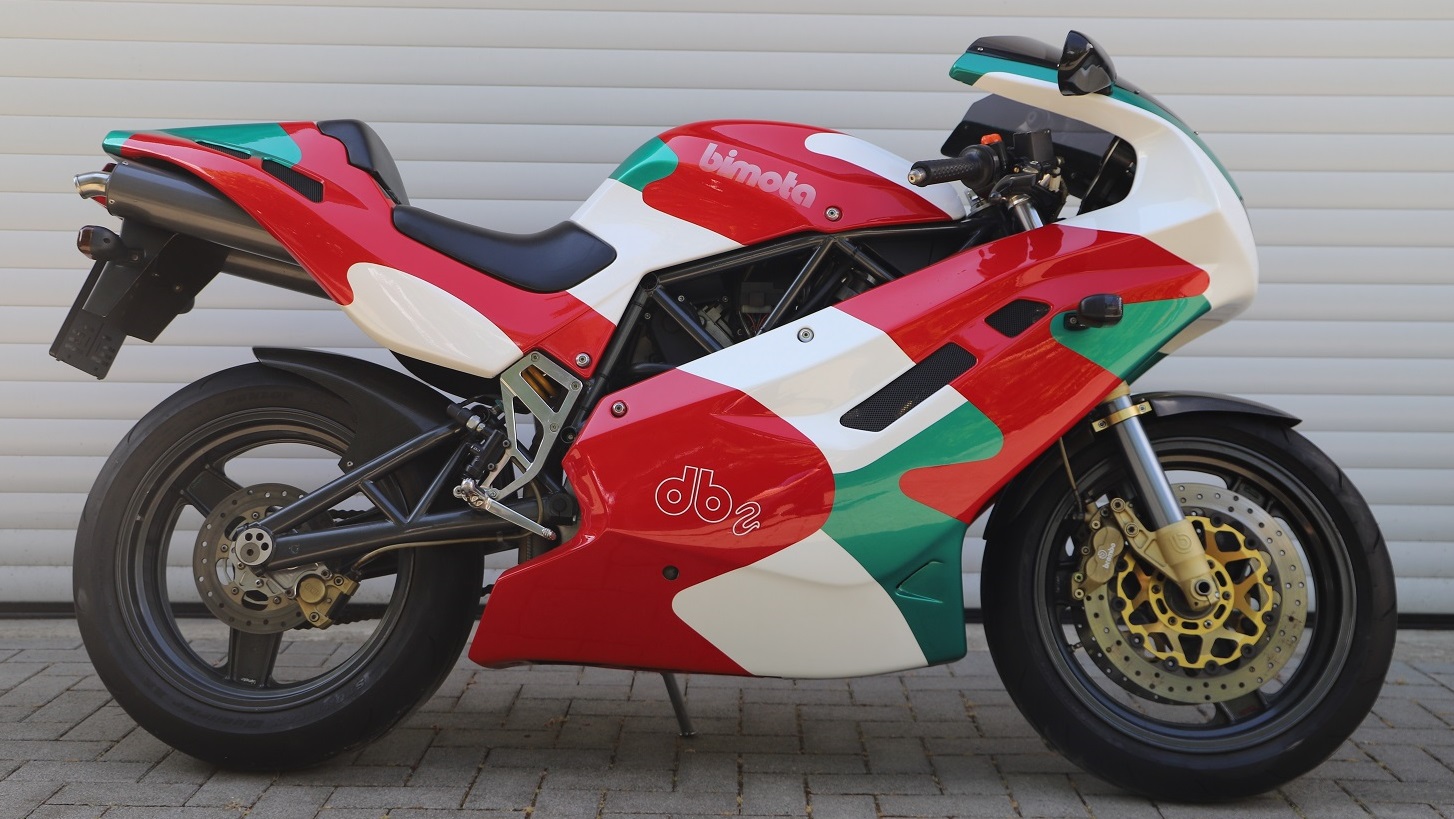
Bimota designs a stunning open-bottom trellis frame for the engine, made of chrome-molybdenum steel tubes with strong triangular reinforcements. This frame stands out for its lightweight and high rigidity. The swingarm, also a triangulated trellis structure with an upper brace, is mounted directly to the engine’s crankcase. The chassis is equipped with the following components:
- 43 mm Paioli Fork – Adjustable in both compression and rebound damping
- Öhlins Rear Shock – Adjustable in compression, rebound, and spring preload
- Oscam 3-Spoke Aluminum Wheels
Front: 3.50 x 17 wheels with 120/70 ZR 17 tires
Rear: 5.50 x 17 wheels with 180/60 ZR 17 tires - Brembo Gold Brake System
Dual 320 mm front disc brakes with four-piston calipers
230 mm rear disc brake with dual-piston caliper
The DB2 was produced in two variants: 285 units with a full fairing and 123 units with a half fairing and lower spoiler. Notably, it was the first Bimota to feature an under-seat exhaust system as standard – long before Ducati introduced the legendary 916 in 1994.
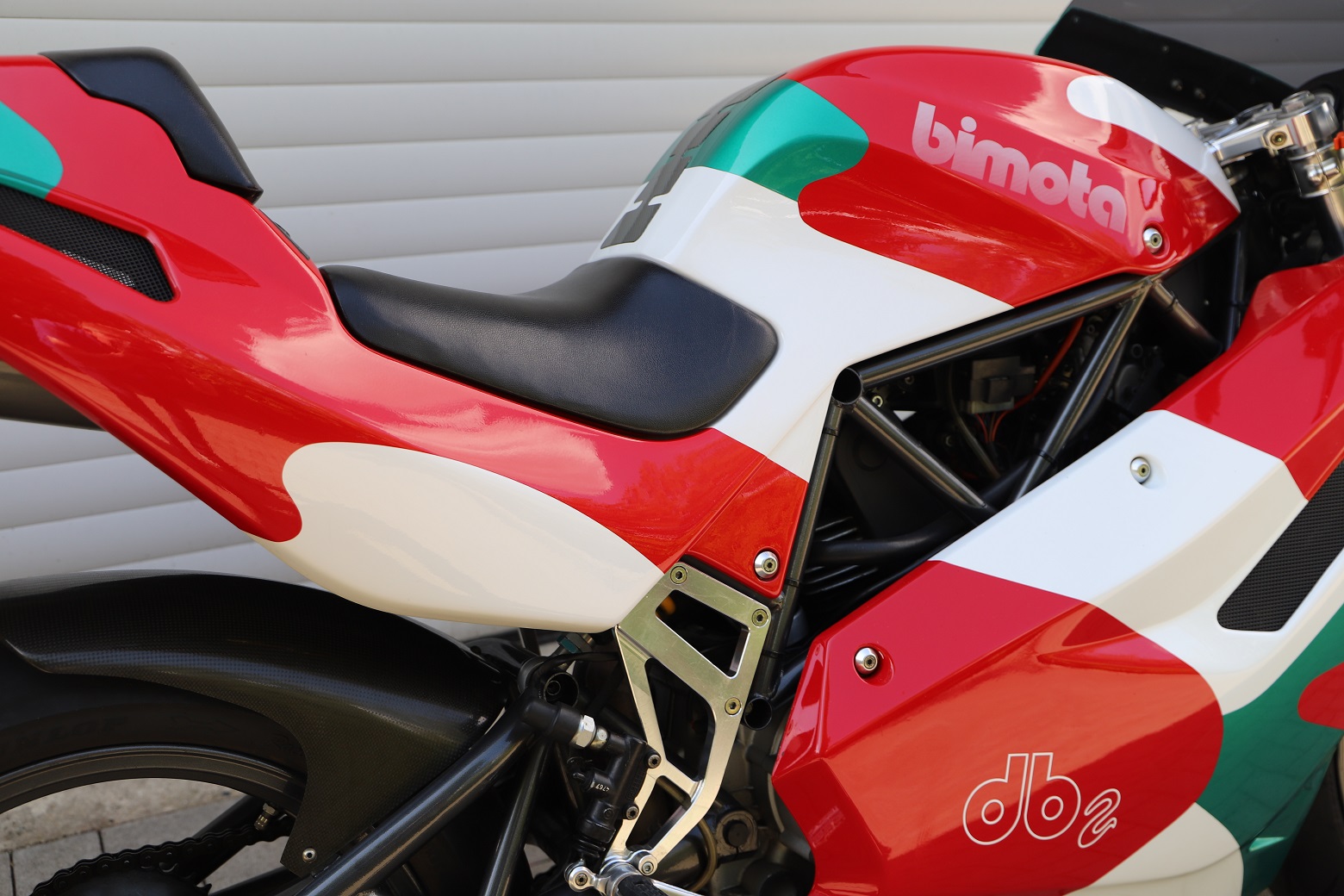
The German motorcycle magazine PS wrote in its October 1992 issue:
„The DB2 is as compact as a 250cc bike and, despite its full fairing, exposes enough technical details to captivate even the most discerning testers for hours. There’s the slender trellis frame embracing the engine, the robustly braced swingarm with small eccentric adjusters for the chain tension, and the two cheeky exhaust pipes protruding from the rear. The brand-new Paioli fork, carbon fiber fenders front and rear, beautifully machined triple clamps, and footrest assemblies—this is the stuff that fuels the dreams of motorcycle enthusiasts like us.“
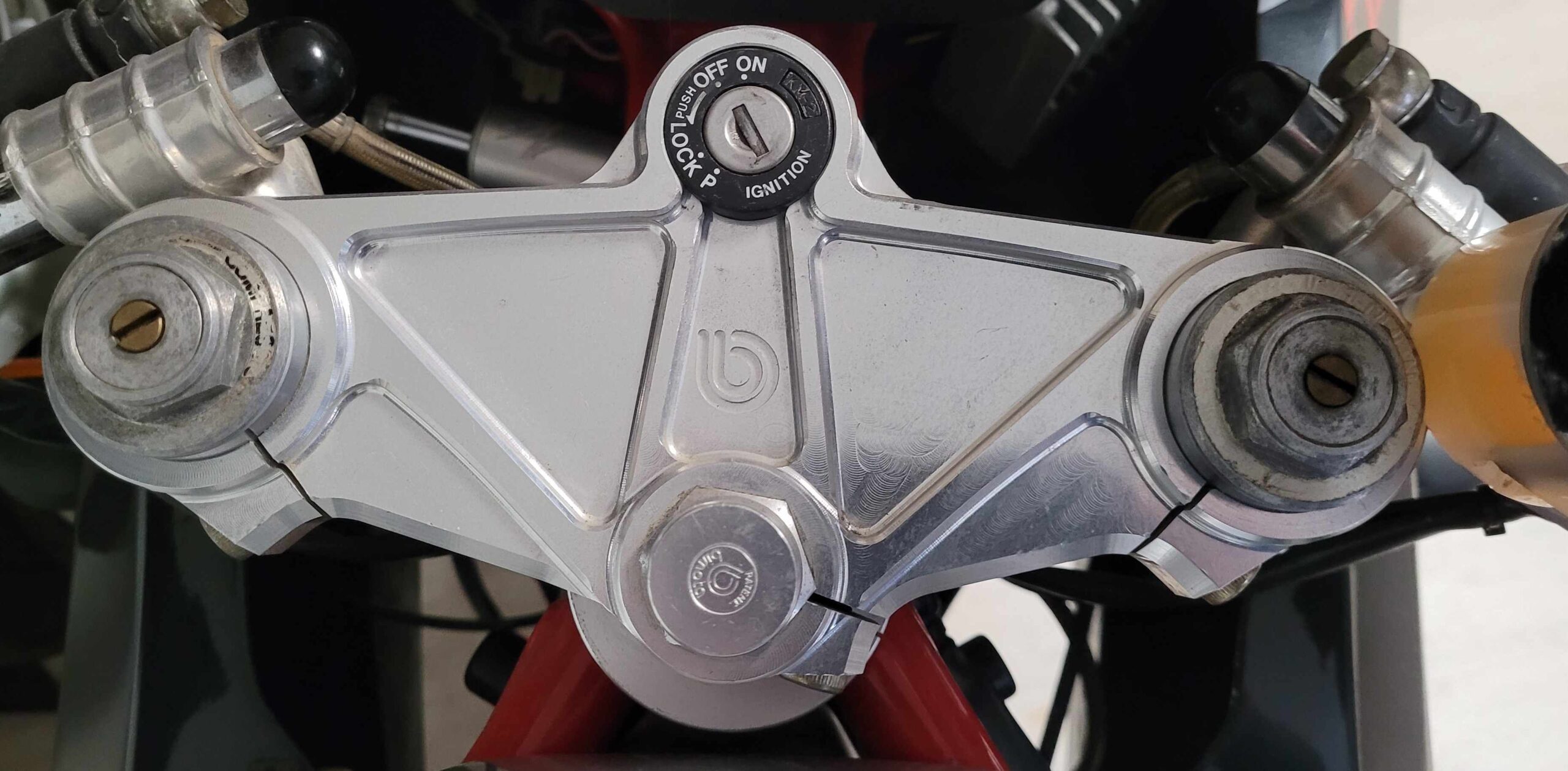
For the Japanese market, a 400cc version was developed in parallel to comply with local registration regulations. This resulted in an additional 106 units of the DB2 400J. It was powered by the same desmodromically controlled two-valve V-twin engine from the Ducati 400 SS.
